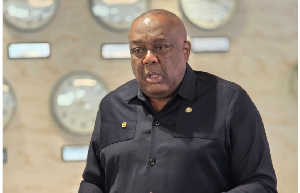Mr Emmanuel Bedeh, a Deputy Director at the Volta Regional Directorate of the Ghana Education Service, has appealed to authorities of senior and technical high schools to “keep close watch” over students for suspected cases of Ebola.
He advised that any such case should be immediately referred to the Volta Regional Hospital.
Mr Bedeh told the GNA in an interview that schools, most of which had reopened, were not prepared and feared they could be a disaster should there be any outbreak.
“Our dormitories and dining halls are overcrowded and we think we are not safe,”
He said.
Mr Bedeh said though some of the schools had infirmaries, they were not adequately equipped and workers were not trained to manage the disease.
The GNA visited some SHSs in Ho and noticed that students were going through the normal registration process for the new academic year without being screened for Ebola.
There was also no information on Ebola anywhere in the schools visited.
At Mawuli School, Madam Rejoice Delali Ansah, the Assistant Headmistress, Administration, said the School had fumigated its compound but yet to procure hand sanitizers for the dormitories.
She said she could not talk about screening of the students and that the Headmaster was not available.
The Heads of Mawuko Girls Senior High School and OLA Senior High School could not be reached but the GNA gathered that the students were not being screened for Ebola.
At OLA, some prefects were seen in gloves and some protective dresses inspecting the luggage of students for un-prescribed items.
Mr Bedeh said though there were no travel records on students, some of them came from neighbouring countries and others spent their holidays outside the country.
He said the schools could not do screening because they had no training for that and called on government and stakeholders to consider training teachers on how to detect suspected cases.
“Our situation is more serious than that of the universities. They are matured students but we are not, so we need more attention and support,” Mr Bedeh said.
Early symptoms of Ebola include sudden onset of fever, weakness, muscle pain, headaches and sore throat.
According to the World Health Organization (WHO), the symptoms could appear from two to 21 days after infection and the nonspecific early symptoms could be mistaken for signs of malaria, typhoid fever and meningitis.
Doctors Without Borders say some patients could also develop rash, red eyes, hiccups, chest pains and difficulty breathing and swallowing and that early symptoms could progress to vomiting, diarrhoea, impaired kidney and liver function and sometimes internal and external bleeding.
Regional News of Wednesday, 17 September 2014
Source: GNA













